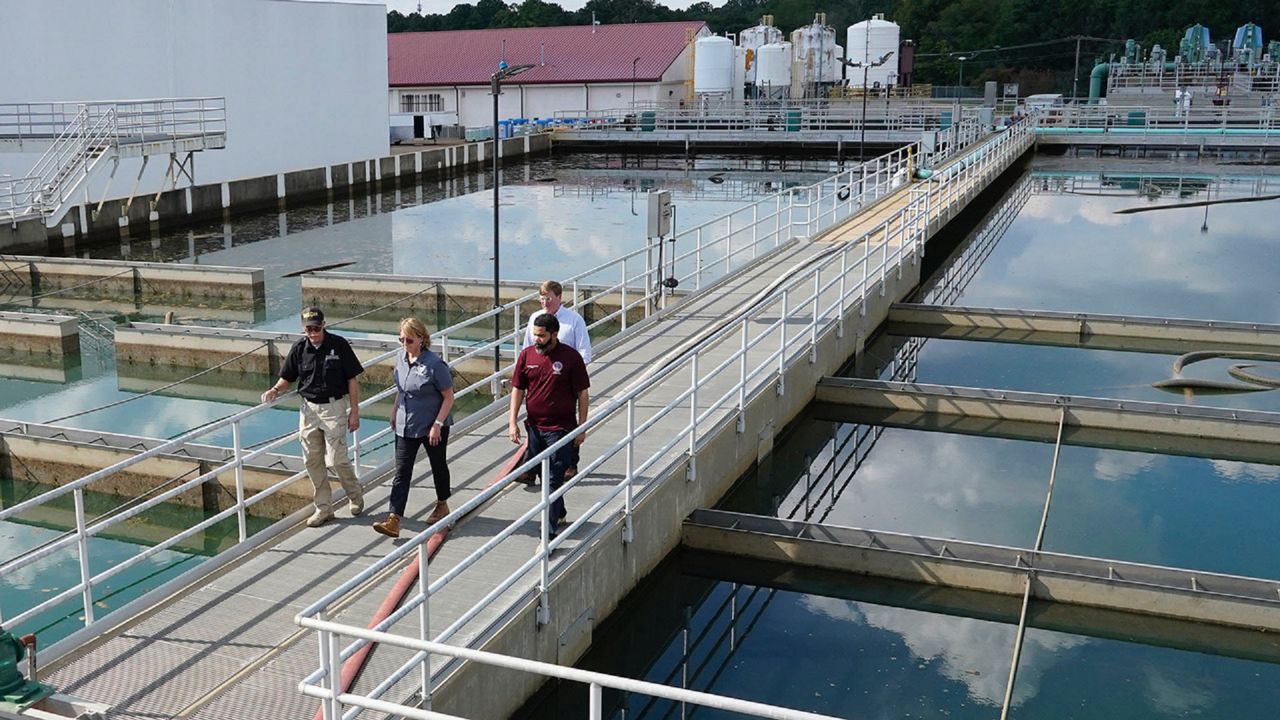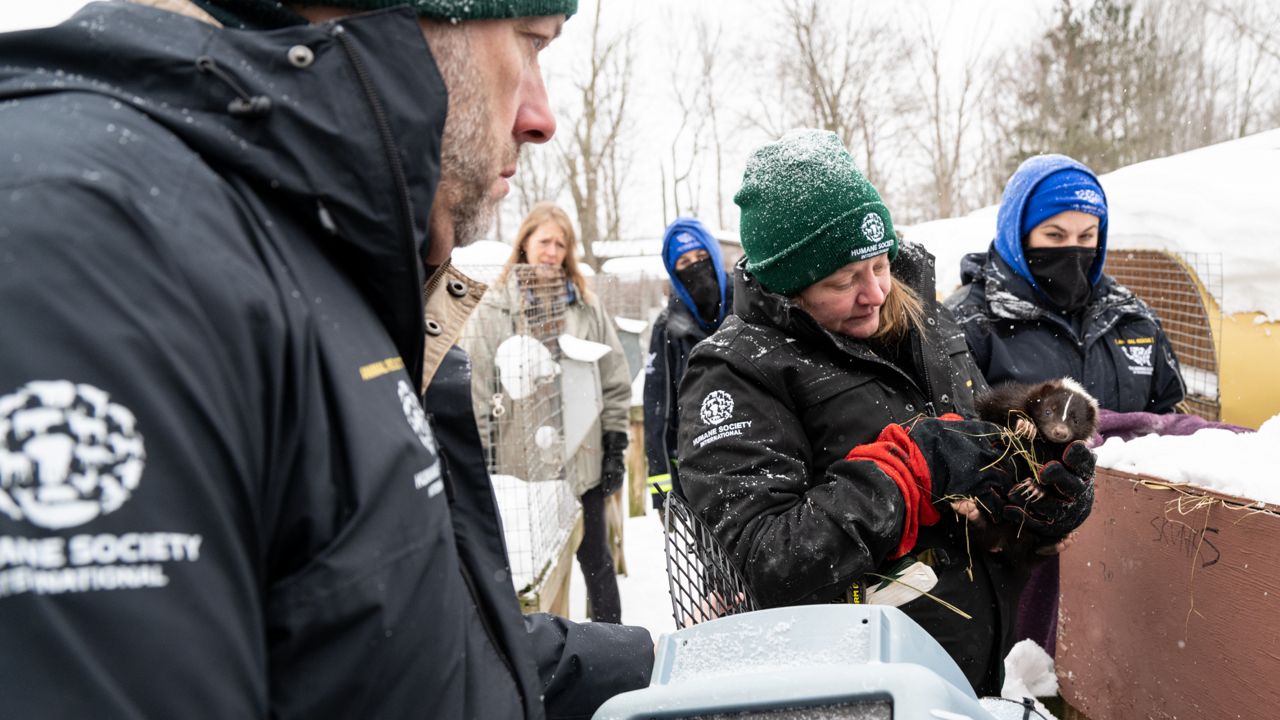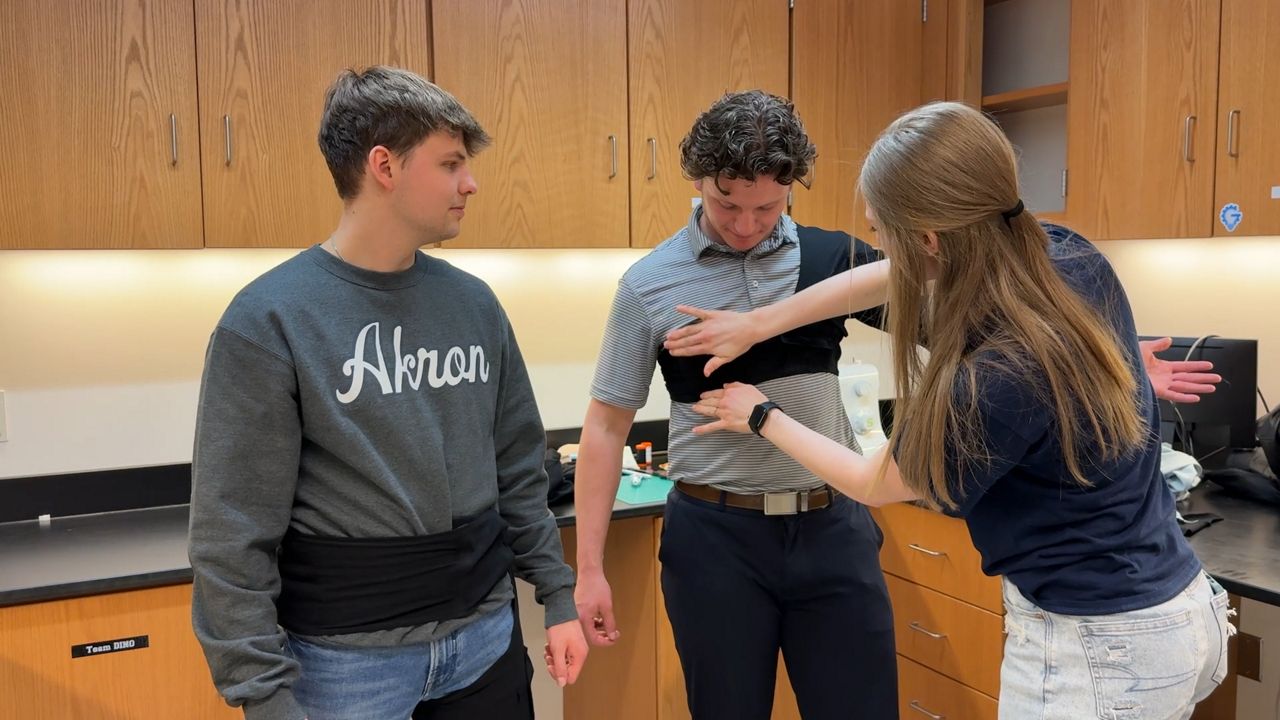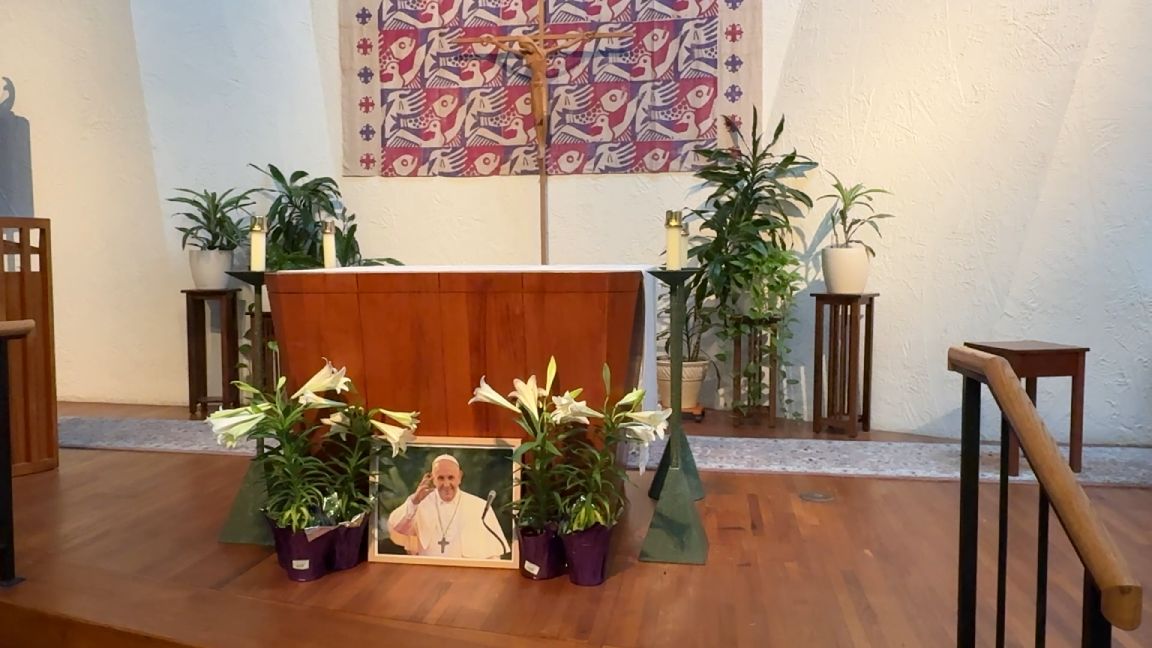CINCINNATI — The City of Cincinnati is sending a veteran team of water utility employees to Jackson, Miss., to help address problems at a treatment plant that has left much of the city’s water supply undrinkable.
What You Need To Know
- A team of Greater Cincinnati Water Works employees volunteered to travel to Jackson, Miss., to help the city address its ongoing water crisis
- Severe flooding led to issues at one of Jackson's main water treatment plans, rendering local water undrinkable from the tap
- The GCWW team will help offset staffing issues experienced at the plant
- Emergency management officials thanked volunteers for their help, and ask those who can assist to continue to give to donation sites
The crisis in Mississippi’s capital city began in late August when extreme rainfall and intense flooding from the Pearl River overwhelmed Jackson’s troubled water system and one of the city’s main treatment plants failed.
Although Jackson’s roughly 160,000 residents have had their access to water restored, it isn’t clean or safe to drink, according to the Associated Press.
A week-old boil-water advisory from Mississippi’s state health department remains in effect because of concerns that low pressure at the treatment plant could lead to contaminants ending up in the water.
On Sept. 9, Molly Minta, a Jackson-area reporter for Mississippi Today, posted a viral video of her turning on a faucet inside her home and brown water pouring out.
My water just now in Jackson, MS pic.twitter.com/LFfat03dCv
— Molly Minta (@mintamolly) September 9, 2022
To help with these issues, Greater Cincinnati Water Works assembled a “qualified, cross-functional team” of five volunteers to head to Jackson for the next two weeks. The group departed Cincinnati on Monday morning.
“Our hearts go out to the citizens of Jackson and all those working tirelessly to restore clean and safe drinking water to the city,” said Verna Arnette, GCWW’s interim director. “We are thankful for the talented GCWW employees who have volunteered to assist with restoration efforts.”
Beyond functional issues with the O.B. Curtis Water Plant, the City of Jackson lacks the trained personnel to run the plant. In a statement, Cincinnati officials described the plant as being “extremely understaffed.”
President Joe Biden declared a state of emergency in Mississippi on Aug. 30, enabling Jackson to receive certain federal resources. But the State of Mississippi requested staffing help from water utilities across the country to ensure 24-hour operation of the treatment facility.
The request for assistance came through the Emergency Management Assistance Compact, or EMAC system. It’s used to request state-to-state mutual aid in response to emergencies. The program allows agencies to work together and provide resources which may not be readily available, according to Sima Merick, executive director of the Ohio Emergency Management Agency.
Ohio EMA contacted GCWW directly. The city responded “without hesitation” to the request, Merick said. So far, Cincinnati is the only Ohio team deployed by way of the EMAC.
The request for help included an ask for volunteers with specific skills and knowledge, mainly focused on treatment plant maintenance. The five volunteers have backgrounds ranging from mechanical work and instrumentation to water treatment and processing.
While the Cincinnati team volunteered for the assignment, they deployed as on-duty employees of GCWW. The State of Mississippi will reimburse Cincinnati for any pay, travel and other allowable expenses, Merick said.
Mayor Aftab Pureval described the volunteers as supporting a “critical operation.” They “embody Cincinnati’s commitment to lifting up those in need however we’re able,” he said.
“We are proud to respond to the call for help during this tragic and challenging moment for the people of Jackson,” he added. “My sincere thanks go to everyone pitching in to help Jackson recover.”
Besides the GCWW teams, volunteers from similar agencies in South Carolina, Michigan and Maryland have also made their way to Mississippi to help with the recovery process. The GCWW team plans to be in Jackson for 15 days.
Malary White, chief communications officer at the Mississippi Emergency Management Agency, thanked the teams of volunteers who’ve come to their aid.
“We can’t thank these people enough for stepping up, leaving their homes and coming out here to help us through this water crisis,” she said. “I wouldn’t say it’s been surprising because that’s just what we do, but it’s always a blessing to see these folks who will step up and help where they are.”
In recent days, the Jackson has seen an improvement in water system operations, per the city’s website.
In an update on Saturday, the city said the water plant remained at a steady pressure over the past 24 hours and is currently functioning at 88 PSI. They also repaired a raw water pump, but work continues to get it back online.
Still, work continues and the boil water notice must remain in place because the distribution system is not ready for full sampling to test water quality. The state requires two rounds of clear samples to remove the boil water notice.
The Mississippi Emergency Management Agency has set up four sites throughout Jackson to help those experiencing issues. The sites operate from 9 a.m. to 6:30 p.m. daily.
The Mississippi Rapid Response Coalition is distributing water at several sites around the Jackson area. Water is able for delivery to those in emergency need using the state’s 311 system.
White also thanked people from across the country who’ve seen supplies ranging from water to personal hygiene products to the numerous Jackson area distribution sites. Anyone who’s looking to donate more supplies, she said, can do so by contacting those in charge of the individual sites.









